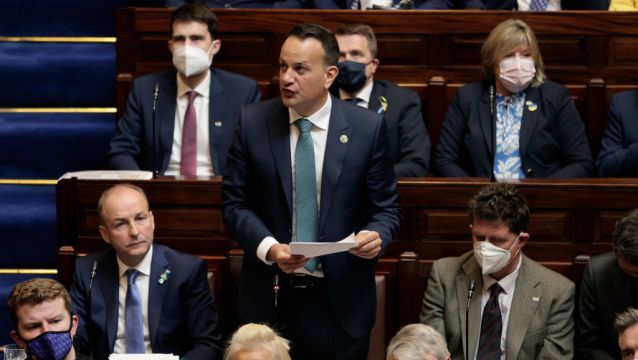Updated at 2.28pm
The Tánaiste has said the State will take back some of the bumper profits from the ESB.
The company reported after tax profit trebled in the first half of the year to €390 million.
The ESB is majority owned by the State and says profits are re-invested in maintaining the network, renewable energy and other infrastructure.
Tánaiste Leo Varadkar says the Government will be clawing back some of the large profits from the company.
"The Government should take back some of the big profits that some of the energy companies are making.
"When it comes to ESB we can do that to one of two ways: either a windfall tax or taking a bigger dividend because it is owned by the people ultimately."
Varadkar said they would then use that money to bring down energy costs for families and businesses.
ESB Group ported an operating profit of €357 million for the first six months of the year. This is a decline of €6 million on the same period in 2021.
However, ESB said this was due to regulated network tariff changes and losses incurred in ESB’s customer solutions business and foreign exchange movements, the Irish Examiner reports.
The loss was offset by higher energy margins in ESB’s Generation business.
Profit after taxed, and exceptional items hit €390 million, three times higher than the figure of €128 million for the same period last year.
ESB Group said: "ESB’s generation and supply businesses are required to operate separately, so increased profits from ESB’s generation business cannot be used to offset costs incurred by Electric Ireland."
In the past decade, ESB stated it had invested more than €10 billion in energy infrastructure and paid over €1.2 billion in dividends.
ESB’s chief financial officer Geraldine Heavey pointed to volatility and high wholesale market prices, which she said are an ongoing key feature of energy markets.
She said ESB's profits provide "the basis for continued strong investment in energy infrastructure to decarbonise electricity".
The war in Ukraine has seen energy prices soar, particularly in Europe, in recent months.







